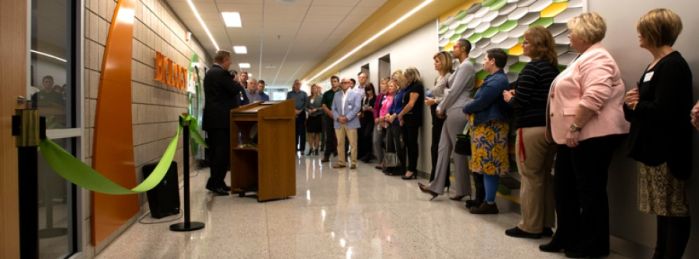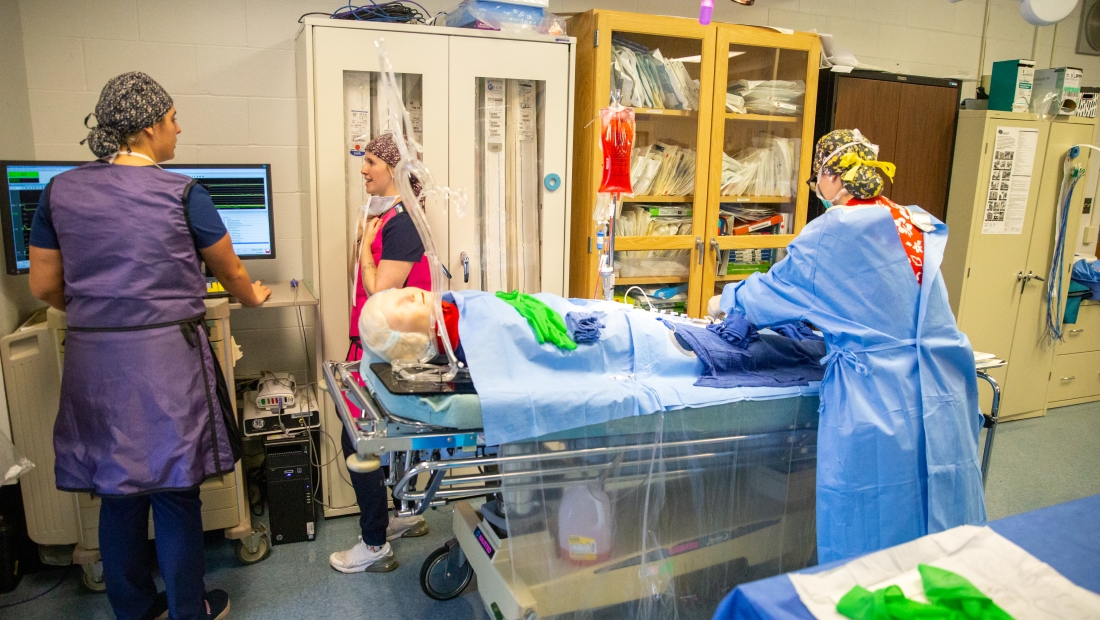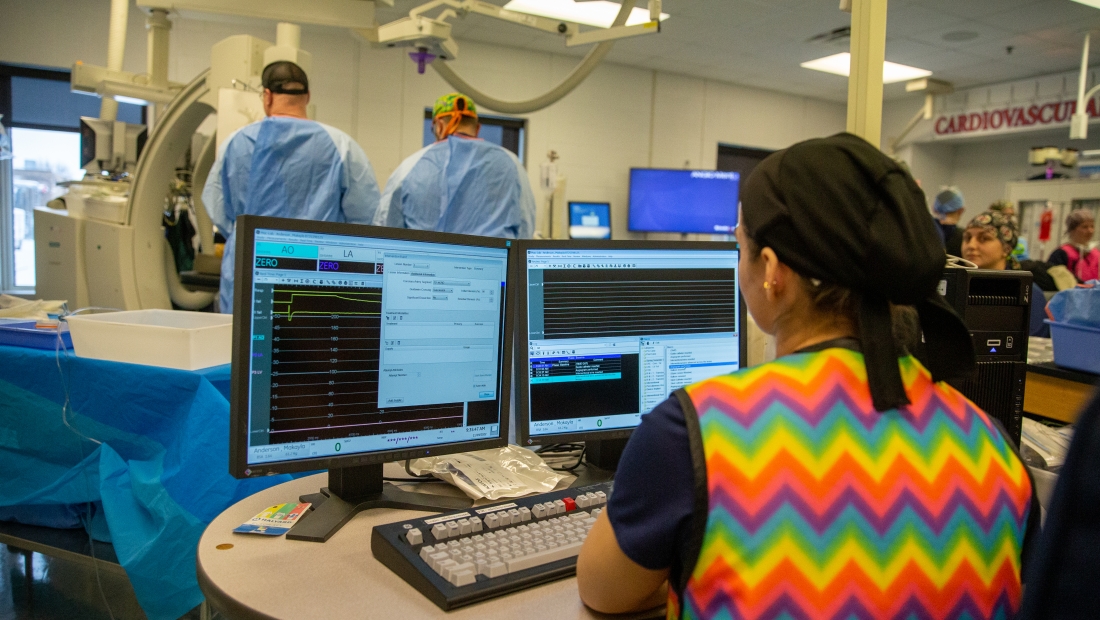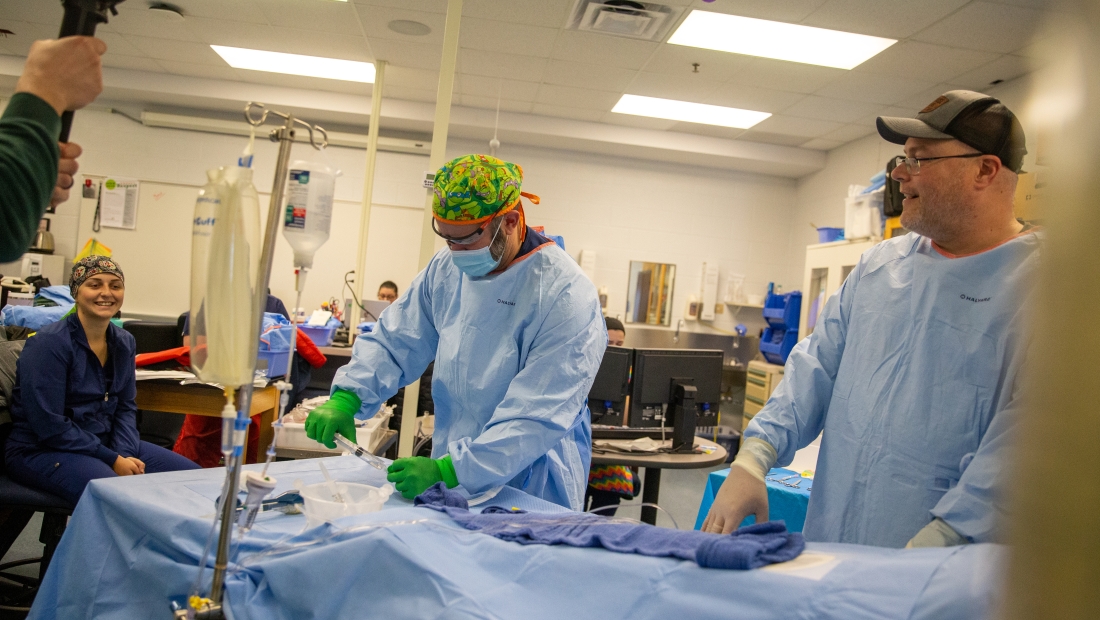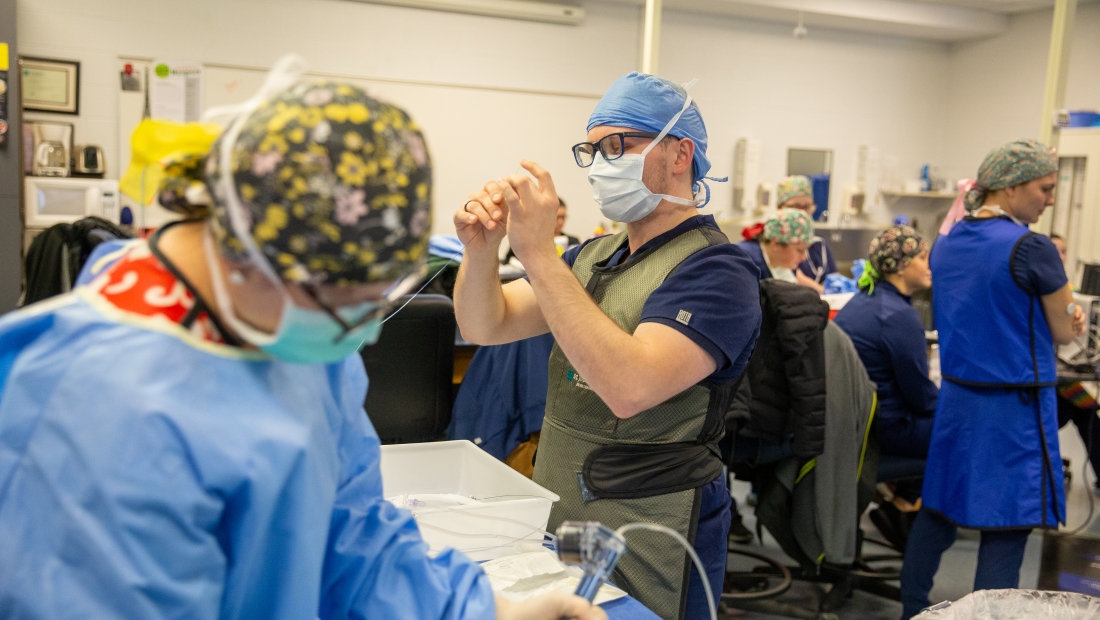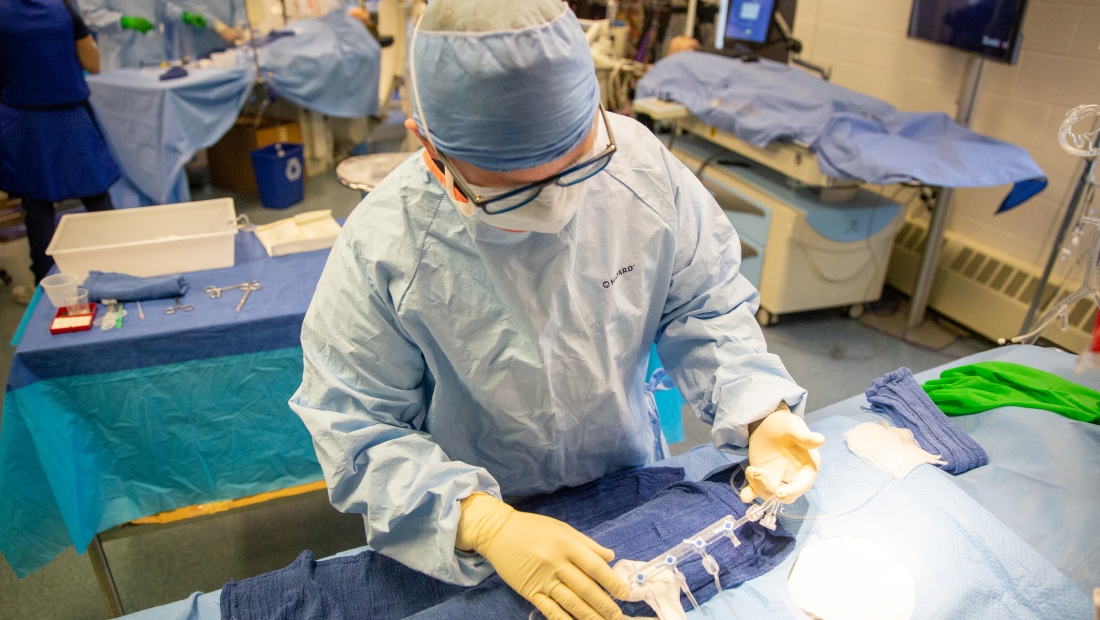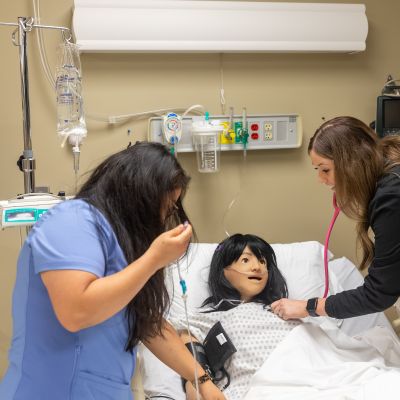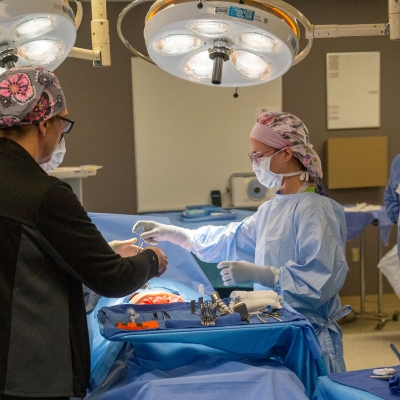DEGREES IN Cardiovascular Technology
Cardiovascular Technology Associate of Applied Science
By the Numbers
Why Choose This Program
Students will learn anatomy, physiology, and pathology of the heart, coronary arteries, and cardiac vascular function, which are all fundamental topics for a Cardiovascular degree.
In our classrooms, we teach students the necessary skills for the workforce. Graduates leave SCTCC with the requirements to be a successful entry-level cardiovascular technologist.
Graduates of the Cardiovascular Technology program utilize their degree to help cardiologists in performing diagnostic and interventional procedures related to stent placements, pacemaker implants, and other heart or blood vessel conditions.
Placement rate from self-reported data of graduates available for work in field of study up to one year post graduation. Wage data is from Minnesota Dept. of Employment and Economic Development (DEED). SCTCC Consumer Information.
From Degree to Career
When you choose the Cardiovascular Technology program at SCTCC, you’ll gain skills that will directly transfer to the workplace. There are several employers in the St. Cloud area that are ready to hire technologists, including CentraCare and Sanford Health.
To guarantee success in the workforce, SCTCC students in the Cardiovascular Technology program graduate with skills required for their future careers. We teach our students how to succeed as an entry-level cardiovascular technologist.
After graduation, students can exercise discretion and judgment in the performance of invasive cardiovascular services, make informed decisions on professional conduct and ethical issues, and perform appropriate procedures and analyze hemodynamic data for interpretation by a physician. With these learned skills, our students have excelled in their respected occupations.
Quick Glance
- Succeed as an entry-level cardiovascular technologists
- Exercise discretion and judgment in the performance of invasive cardiovascular services
- Make informed decisions on professional conduct and ethical issues
- Perform appropriate procedures and analyze hemodynamic data for interpretation by a physician
View all program learner outcomes
Joint Review Committee on Education in Cardiovascular Technology (JRC-CVT)
|
Years 2022 |
Graduates threshold > 70% retention (3-year average) | Certification exam threshold >60% of total number of individuals attempting. (3-year average pass rate) |
Job placement threshold >70% positive placement (3-year average) |
|---|---|---|---|
|
SCTCC 3 Year Average |
86.49% |
100% |
90.63% |
By using the skills taught at SCTCC, graduating from our Cardiovascular Technology program ensures students can work as either Cardiovascular Technologists or EP Technologists.
Potential Employers
Our graduates are highly employable, students have worked with cardiac catheterization labs, electrophysiology labs, open heart surgical suits, and cardiac research facilities.
A day in the life of an SCTCC graduate includes working side by side with Cardiologists assisting with diagnostic and interventional procedures on the heart. Graduates can expect to work on patients in the outpatient and emergent settings. Evening and weekend call shifts are often part of many positions.
Quick Glance
Career Options
- Cardiovascular Technologist
- EP Technologist
Potential Employers
- Cardiac catheterization lab
- Electrophysiology lab
- Open heart surgical suits
- Cardiac research facilities
By utilizing techniques taught at SCTCC, our graduates have found success in their careers. Students from our Cardiovascular Technology program have gone on to work with leading hospitals in the area such as CentraCare, Allina Hospitals, M Health Fairview Hospitals and Sanford Health Hospitals.
Quick Glance
- CentraCare
- M Health Fairview Hospitals
- Allina Hospitals
- Sanford Health Hospitals
The Cardiovascular Technology program is accredited by:
Commission on Accreditation of Allied Health Education Programs (CAAHEP)
9355 - 113th St. N, #7709, Seminole, FL 33775
Telephone:(727) 210-2350
Fax: (727) 210-2350
http://www.caahep.org/
Joint Review Committee on Education in Cardiovascular Technology (JRC-CVT)
1449 Hill Street
Whitinsville, MA 01588-1032
Telephone: (978) 456-5594
http://www.jrccvt.org/
Ready to Take the Next Step?
Are you ready to learn more about the CVT program and being a student at SCTCC?

Fill out this form to receive useful information that's specific to your program.
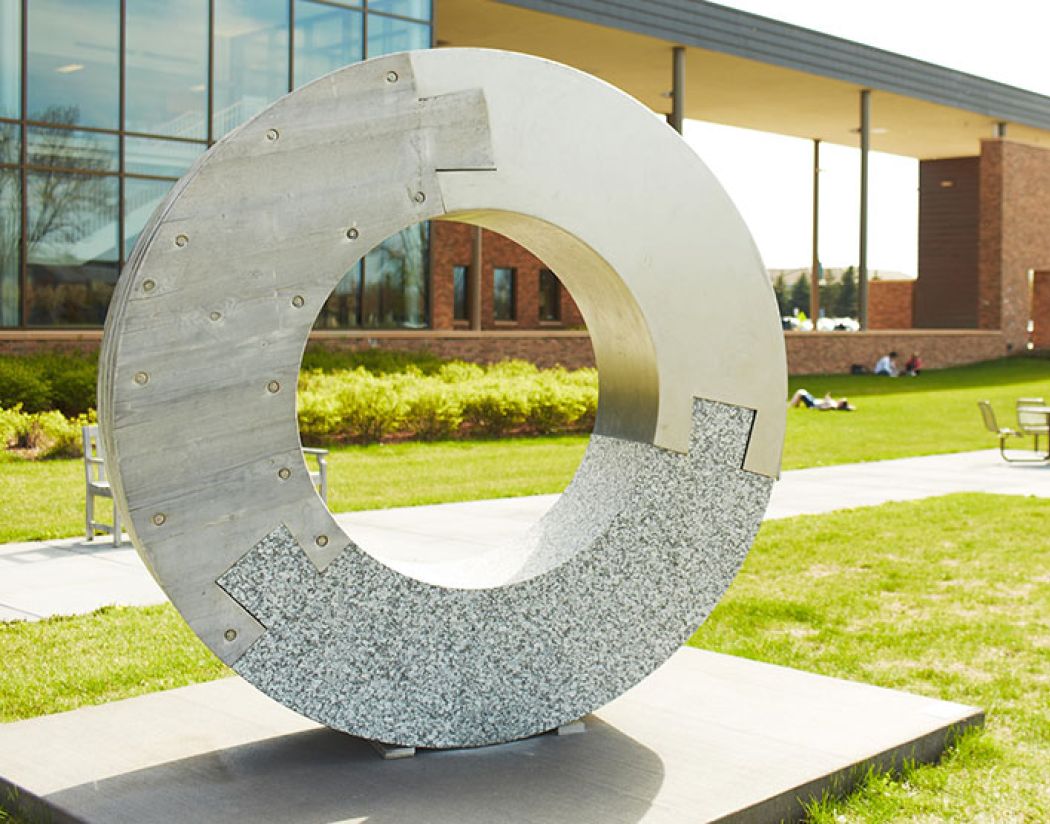
- Call us at 320-308-5089
-
Email us at recruitment@sctcc.edu
- On campus Monday-Friday, 8 a.m.-4:30 p.m.
Visiting campus is an excellent opportunity to learn about SCTCC programs, the application process, and tour the state-of-the-art-labs and classrooms.
Paying for College
Students choose SCTCC for a lot of reasons, but saving money is one reason we hear from almost every student at SCTCC. We’ve got a breakdown of the costs for the program, along with information on financial aid and scholarships.
Apply just once and you are considered for all eligible SCTCC scholarships.

Cardiovascular Technology Instructor

Good Stuff
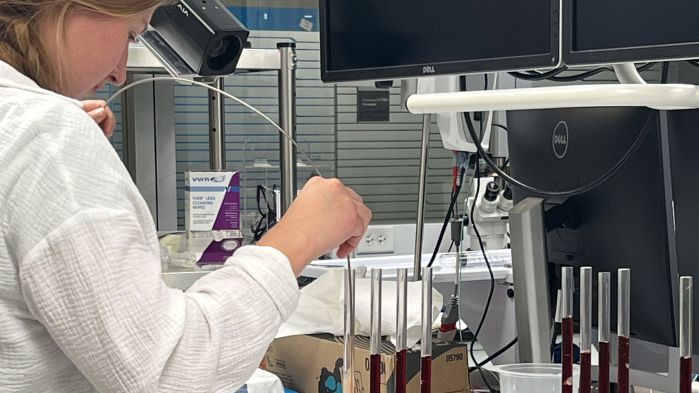
Cardiovascular Technology Students Visit Boston Scientific
